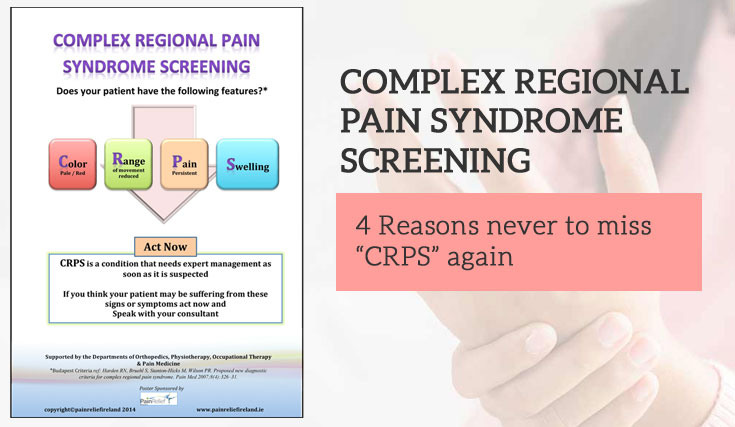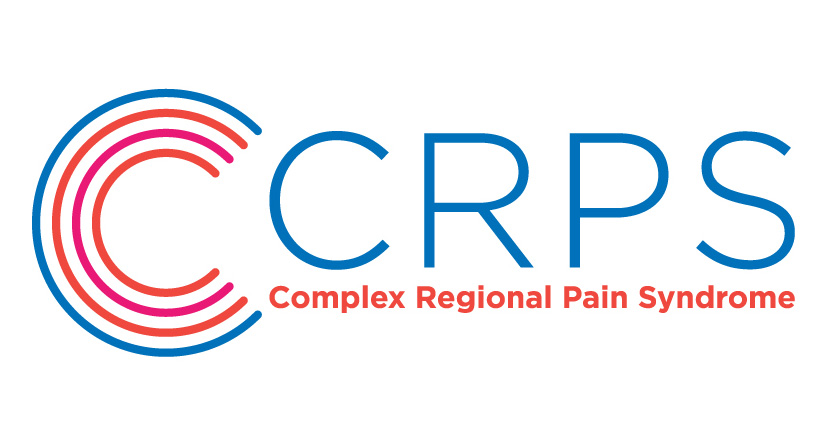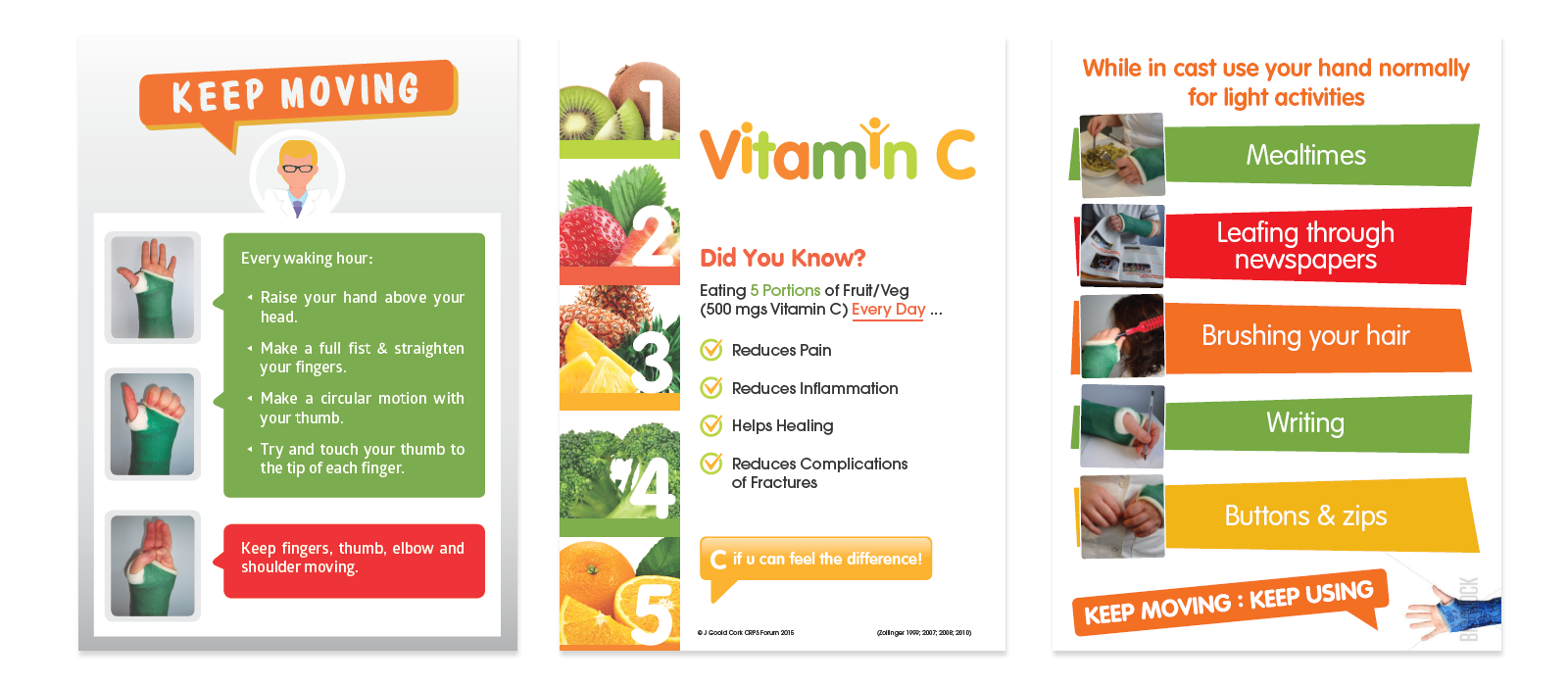
on 03 Apr 2019 10:41 AM
0 comments
Complex regional pain syndrome (CRPS) is a poorly understood condition where individual experience persistent severe and debilitating pain long after the initial injury.
Very often it is related to a fracture or sprain, however in over 40% of cases there is no obvious trigger factor identified. There are several features such as the fact that is three times more common in females, peaks around the fifth decade and is highly associated with onset / continue pain in the limb during the first 4 weeks. It is difficult to estimate exactly how common CRPS is as many cases may go undiagnosed or misdiagnosed. It is proposed that up to 1 in 3,800 people in the UK develop CRPS each year.
We now understand that CRPS is a condition with a wide spectrum of features ranging from the most severe to mild version. It is also very clear that it have a significant impact and is a life changing event in almost all individuals.
Action required
Fortunately early recognition allows the opportunity to treat CRPS and the outcome improves dramatically. At Pain Relief Ireland we treat CRPS as promptly as possible using a multidisciplinary approach because we recognize the important of early management using the Budapest Criteria and guidelines as agreed by all the colleges in the UK. Dr. Hegarty (Clinical Director, Pain Relief Ireland) contributed to these guidelines and promotes early action by encouraging physicians, surgeons, physiotherapists and occupational therapists to look for the signs and symptoms early.
To assist in the early prevention he recommends the acronym “CRPS” to help remember the following 4 features to ensure you never miss CRPS again.
C: Colour: Is the limb hot / red / discoloured?
R: Reduced strength or contractures
P: Pain: severe and continuous especially in the early phase
S: Swollen, Stiff and sweating
Treatment Options
Treatment for CRPS involves four main aspects:
- Education and self-management – being given clear information about the condition and advice on any steps individuals can take to help manage the condition themselves
- Physical rehabilitation – treatment to help manage your symptoms and reduce the risk of long-term physical problems. This is a key aspect and you should get the advise of physiotherapists and Occupational therapist experienced in the area
- Pain relief – treatments to help reduce your pain,
- Psychological support – interventions to help you cope with the emotional impact of living with CRPS, such as cognitive behavioural therapy (CBT)
Due to the complex nature of CRPS, a number of different professionals will usually be involved in your care.

